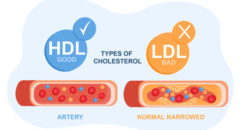
In the United States, a stroke attack happens every 40 seconds. Communication challenges are not rare in people who survived a stroke. Specifically, over 30% of people who experienced stroke have their communication handicapped afterward.
Yes, just as stroke affects your motor skills, emotional intelligence, and memory, stroke also impacts your language. Depending on the type of stroke, one’s language processing capacity can be impaired.
RELATED: Walking After a Stroke Can Boost Survival
In other instances, stroke can paralyze the tongue or introduce weakness to the throat muscles. Consequently, a stroke survivor can experience difficulty in swallowing and managing his or her breathing rhythm. All these come together to impede sound formation.
Speech difficulties – as relating to stroke – are typically associated with aphasia. I will tell you more about this.
Aphasia and what it means for your conversation skills
Aphasia results from the stroke damaging the brain’s sector responsible for managing language processing and speech formation. This sector is the language control center.
There are two types of aphasia – depending on which brain area was affected. These are expressive aphasia and receptive aphasia, each with differing impacts on one’s communication skills.
Receptive aphasia results from the stroke affecting the brain’s Wernicke area. This brain sector accommodates the motor neurons responsible for understanding speech.
Therefore, receptive aphasia makes it difficult to comprehend complex sentences (particularly lengthy ones). Individuals with receptive aphasia will also struggle to extract meaning from a conversation involving two or more parties. This is typical when such parties talk concurrently.
This comprehension impediment also happens when music is played in the background. In such conditions, an individual with receptive aphasia would interpret what is said as unintelligible sound. Their speech would also lose coherence.
Expressive aphasia occurs when the brain’s Broca area is impacted. A stroke survivor with expressive aphasia may have no issues comprehending others’ speeches. However, he or she would struggle to express themself coherently with words.








